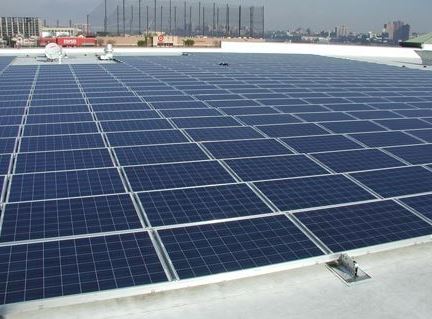
Australian companies are taking action against climate change. Last week, at the United Nations climate summit, Atlassian co-founder Michael cannon-brookes announced the a $26 billion Australian software company’s commitment to zero emissions by 2050.
Such “net zero” commitments are becoming more common, but there is no way to really achieve this momentum in different parts of the economy. Now ClimateWorks Australia and the Monash Sustainable Development Institute have launched a “Net Zero Momentum Tracker” to track the emission reduction commitments made by Australia’s leading companies and organisations, as well as state and local governments. The tracker’s goal is to put all of Australia’s net zero emissions commitments in one place and assess their consistency with the Paris climate targets.

Zero emissions in real estate

We first assessed Australia’s property sector. Last week, we released a report that looked at all real estate companies listed in the ASX 200 index and all companies required to report their emissions under the National Greenhouse and Energy Reporting Act.
The companies we examined included Dexus, Mirvac, Stockland Corporation, GPT Group and Lendlease. They develop, own or manage some of Australia’s largest corporate offices, commercial real estate, retail centres, retirement villages and residential developments. The report found that nearly half (43 per cent) of Australia’s large listed property companies had committed themselves to being in line with the Paris Climate Agreement to achieve net zero emissions of greenhouse gases from their own and managed assets by 2050. Notably, the six most ambitious zero-net targets represent 36% of the asx200 real estate sector. Of the six companies, several leading ones – Dexus, Mirvac, GPT group and Vicinity – have a target of zero emissions by 2030, which suggests the commercial case for strong climate action.

Industry leaders can inspire copycat action

By highlighting what organizations are doing and how they are doing it, the NPM aims to encourage more organizations to make and strengthen emission reduction commitments to achieve the goal of achieving NPM by 2050. Dexus, Australia’s largest owner and manager of office property, for example, has developed a comprehensive strategy to achieve the group’s goal of managing a property portfolio with zero emissions. This includes reducing energy use, switching to renewable electricity, electrifying buildings and reducing non-energy emissions from waste, waste water and air conditioning.
Of particular importance is Mirvac’s commitment to “net growth” by 2030. This means that the company aims to go beyond net zero, reducing emissions by more than its business. Mirvac has set up an energy company to install rooftop solar power on their commercial buildings and sell electricity to households. The company also has a “zero emissions house” pilot project that explores how to minimise indirect emissions from upstream areas for residential development. Another big company, GPT group, has extended its commitment from the assets it owns and manages to all buildings in which it has an ownership interest, including buildings it jointly owns or does not manage. The companies will benefit from their actions in a variety of ways, including lower operating costs, improved health and productivity of residents, and higher sales prices, rents and occupancy rates.

Action needs to be accelerated

While many real estate companies are moving in the right direction, none of the companies we considered, such as those from co-owned assets, supply chains and investments, have achieved a net zero emissions target that covers all emissions.
Real estate companies still have a great opportunity to strengthen their commitment to zero emissions. This requires comprehensive targets for direct and indirect emissions within each company’s sphere of influence, supplemented by detailed plans to achieve this target. By making a public commitment to reduce emissions, the real estate industry is helping build momentum across the Australian economy to achieve this goal. Banks and state and local governments are next in the Net Zero Momentum Tracker initiative.

By 2050, we can be a carbon-neutral nation

Strong action on climate change is essential if Australia is to thrive in the future. Over the past 20 years, we have paid a heavy price for the lack of consensus on climate policy. It harms our natural environment, our international reputation and the economic prospects of a low-carbon world in the future. The next two years will be crucial if Australia is to meet its commitment to work with the rest of the world to limit greenhouse gas emissions and avoid the worst damage from global warming.
In 2015, almost all countries signed the Paris climate agreement. They pledged to keep global warming below 2 degrees Celsius and achieve net zero emissions. According to our calculations, Australia needs net zero emissions by 2050 to play its part. As a first step, Australia pledged to reduce its overall emissions by 26-28 per cent from 2005 levels by 2030. Under the Paris agreement, it must progressively present stronger targets every five years. Unfortunately, Australia is not even on track to meet its relatively modest 2030 target.

